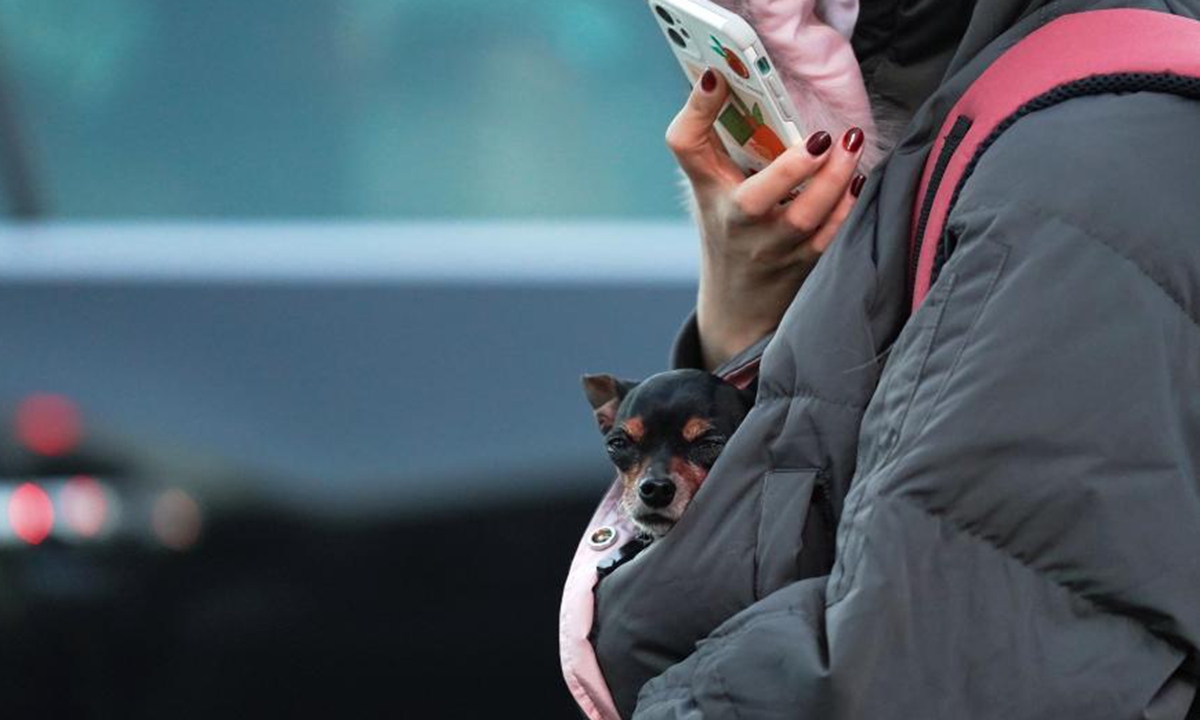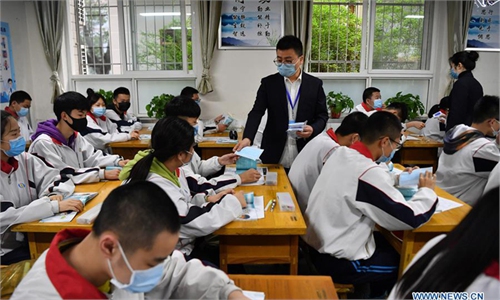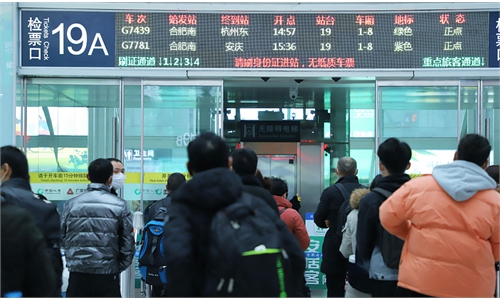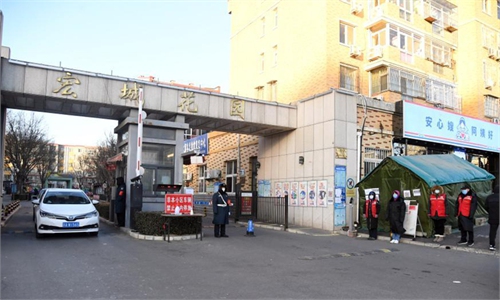
A little dog is coated in thick clothes of a pedestrian waiting at a crossroad in Chaoyang District of Beijing, capital of China, Dec. 29, 2020. China's meteorological authority on Tuesday renewed an orange alert, the second highest in a four-tier warning system, for a cold wave as a strong cold front has been sweeping across most parts of central and east China from Monday. (Xinhua/Ju Huanzong)
Apart from the resurgence of the coronavirus that has confined many Beijingers at home, local residents now have another reason to stay indoors - the bitter wind and extreme cold as the city saw its coldest recorded December day in 42 years at -26 C, with residents astonished at the sudden temperature drop.
"The forecast for Beijing is even colder than the North Pole," a netizen on China's Twitter-like Sina Weibo said early on Wednesday, posting screenshots of weather-tracking apps which read -13 C in Beijing and -3 C at the North Pole.
As a cold air mass swept across northern China and Beijing since Tuesday, temperatures plunged from an average daily high of 2 C to maximum highs of -6 C and lows of -13 C, some of the coldest December days in a decade. As high winds accompanied the cold snap, with gusts of between 30-50 kilometers an hour, the wind chill has seen real feel temperatures of -22 C, with residents scurrying to get inside as they hold onto their hats.
The lowest temperature of -26 C on Tuesday was recorded at Beijing Foyeding meteorological observatory in the northwest district of Yanqing, the highest weather observatory in Beijing at 1,224.7 meters high. It was the coldest December temperature recorded in Beijing since 1978 when the observatory was established.
"I'm as tough as a wolf from northern Xinjiang, but I pronounce today that I caved in," a student from Northwest China's Xinjiang Uygur Autonomous Region who lives in Beijing told the Global Times.
Many netizens suspected the cold snap might be behind the resurgence of coronavirus flare-ups in Beijing, posing challenges for epidemic prevention and control as the temperatures continue to drop. Others said that the freezing temperatures made the idea of going out unattractive, which would help prevent and control any spread of the virus.
"The coronavirus in winter is like an animal in hibernation. It does not reproduce, nor is it active, but it survives longer at lower temperatures, which could increase people's chance of exposure to live viruses compared with warmer days," Wang Guangfa, a respiratory expert at Peking University First Hospital, told the Global Times on Wednesday.
The sporadic outbreaks of COVID-19 in Beijing in the last two weeks could also be attributed to possible environment-to-human transmissions, particularly in winter, as the cold weather has turned the surroundings into cold-chain-like environments, Wang said.
"What's more, people are more likely to catch cold due to weaker immune systems in winter, coupled with indoor gathering at venues without adequate ventilation, so these factors combined make winter a more vulnerable season for contracting the coronovirus," he added.
Beijing has recorded sporadic COVID-19 cases since winter began. The city reported one more confirmed case on Tuesday and seven more on Monday, bringing the total new infections to 22 since December 14, triggering states of emergency in areas of China's capital that have been affected, and prompting new citywide advice to take more precautions.



